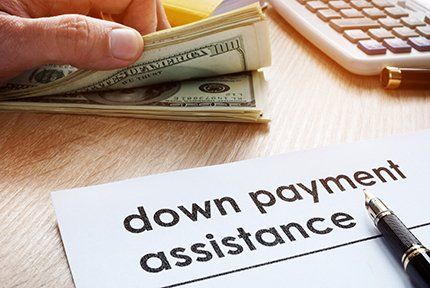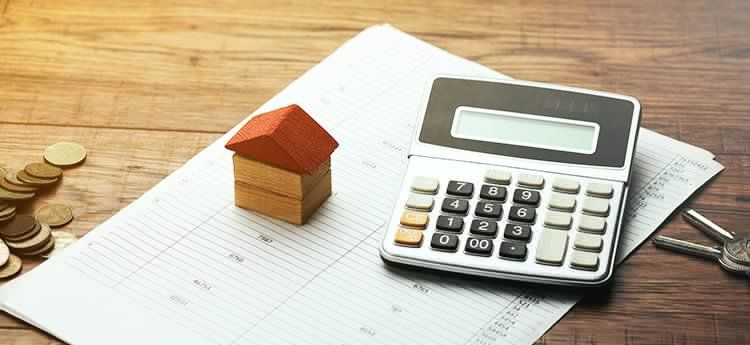11990 Grant St., Suite 550 Northglenn, CO 80233
5280 Magazine Five Star Mortgage Professional Award Winner every year since 2013
OFFICE LOCATION
11990 GRANT ST., SUITE 550 NORTHGLENN, CO 80233
5280 Magazine - Five Star Mortgage Professional Award Winner Since 2013
CALL US TODAY
303-668-5891
How to Use Cryptocurrency to Pay Your Mortgage
Up until the late 2000s, the housing market remained largely the same as it had always been. The brokerages, mortgage lenders, and means of paying home loans prior to 2008 housing market crash were nearly indistinguishable from one decade to another. But as the millennial generation has entered the housing market, they have shaken up the way in which many of the steps of purchasing a home works.
For the generation that came of age during the Great Recession, cryptocurrencies have become a popular investment and as more young people continue to invest in coins like Bitcoin or Ethereum, so too have more of them started to put these investments toward their mortgages. While not all mortgage lenders will accept or even understand cryptos, there are a growing number of brokers taking these new forms of payment very seriously. So if you’re thinking of putting some of your Bitcoin to good use but you’re not quite sure how, then this guide is for you.
What to Know Before Using Cryptocurrencies to Pay for a Home
While you’re certainly able to pay for a significant portion of your home loan and/or downpayment with Bitcoin, Dash, Ripple, etc., there are also some important details that you’ll want to be aware of before you decide to do so.
Volatility
As anyone who’s invested in cryptocurrency before is likely well aware of, saying that the market is volatile is an understatement. Prices don’t tend to simply fluctuate from day to day, they can skyrocket or plunge (sometimes both in the same day). So before you decide to cash out your Litecoin or Monero, make sure that you’re comfortable with the potential that either of those cryptocurrencies could experience a sharp rise in price not long after you do.
On the flip side of the coin, make sure that you don’t hesitate when you do decide to sell. The longer you wait before selling, the more you risk a significant drop in price that could seriously impact your purchasing power. So if you’ve decided to sell, then don’t wait.
Taxes
To many, the appeal of cryptocurrencies is the relative anonymity that they come with. While it may be tempting to see this anonymity as a perk that affords you the opportunity to not report your sale to the IRS, do not give in to temptation here. Failing to do so could land you in a heap of trouble with the organization and that’s not something that anybody wants to see happen. So be sure that you keep documentation of any and all profit you make from selling your cryptocurrencies so that you can accurately report your financial situation come tax time.
Diversification
One area where cashing out your Bitcoin or altcoin to help pay for a house is a definite plus is in diversifying your investments. If you have enough cryptocurrency that you can use them as a means of paying for a significant portion of mortgage or down payment then the chances are pretty good that you have a decent chunk of your net worth tied up in your investment. Selling some of that cryptocurrency to invest in a home means that you are also diversifying your investment portfolio by jumping into the real estate market and there are few investments better than real estate.
How to Sell Cryptocurrency
Before you can get started with a mortgage, you’ll first have to understand how to sell your cryptocurrency choice. Here’s how you can liquidate those coins and get the ball rolling.
Transfer your coins to an exchange
Before you can sell your coins, you’ll first need to transfer the balance of your crypto wallet to an exchange platform like Coinbase, Bittrex, or Kraken. Since you’re likely making a pretty large transaction if you’re using these funds to finance a mortgage or down payment, it’s a good idea to initiate a relatively small transaction before you commit to a large amount. This is because you want to be sure that all of the crypto you’re selling is going to the right place as you can’t reclaim any that you send to the wrong address.
Trading your crypto
Once your balance is on your exchange of choice, you can then either trade them for different cryptocurrencies or for USD directly. Well-established cryptocurrencies like Bitcoin, Ripple, and Litecoin can be withdrawn directly into USD but for most other altcoins (something like Cardano, for instance) you’ll need to trade them in for one of the aforementioned coins before you can make your withdrawal. Once you’ve got your money, you can then simply transfer it to your bank account.
How to File Taxes on Cryptocurrency Sales
So you’ve sold some — or even all — of your cryptocurrency. Great! Now you need to remember to file taxes on that sale as it counts as income. While it’s tempting to abuse the relative anonymity of bitcoin and the like, there’s a good chance that doing so would make you ineligible for a mortgage loan as no reputable lender would want to get mixed up with the IRS in such a way. So be sure to follow these steps if you want to stay in the good graces of the organization.
Document everything
Fannie Mae recently clarified their position on the use of cryptocurrency in the mortgage process, saying that they do in fact allow cryptocurrencies to be used to secure a home loan but only if there is a full, verifiable paper trail in place. So while your cryptocurrency holdings themselves aren’t yet taxable, you need to carefully document any profit off of any you sold as that counts as an income which, as you’re likely well aware, is taxable. So if you’ve sold any cryptocurrencies, you need to get the records on those sales. These can typically be obtained by downloading your transaction data from any of the exchanges and/or crypto wallets you use. Coinbase will even send you a 1099-K if you’ve made a profit of $20,000 or more. If you elected not to use an exchange at all then you’ll need to do your best to document all of this information on your own.
To help make your taxes a little easier, you can utilize services such as Bitcoin.tax that will let you take a CSV documenting all of your cryptocurrency transactions and they’ll, in turn, give you your capital gains report, income report, donation report (for any gifts and tips you may have given using cryptocurrencies), and a closing report that displays your final net profit and loss.
Additionally, make sure that the sale of whatever cryptocurrency you’re planning on using has finalized at least 60 days prior to when you plan on using the funds toward your loan. This is the industry standard for any asset liquidation and it applies to cryptocurrency as well. There needs to be documentation showing the funds in the bitcoin exchange account for at least 60 days prior to the sale and the withdrawal for the sale is required. If the funds were not in the exchange wallet for the required time frame, then your lender will then need to further source the funds. If the source of the funds can’t be documented to at least 60 days then the seasoning will begin once the deposit from the sale of the bitcoin is made into a traditional account.
How your sale will be taxed
Lastly, it’s important to understand how you’ll ultimately be taxed for the sale of your cryptocurrencies. If you’ve owned your cryptocurrency for less than a year before selling it, then it’ll be considered short-term capital gain, which is taxed at the same rate as normal income. On the flip side, if you held onto your cryptocurrency for more than a year then it’ll be considered long-term capital gain, meaning that the income will instead be taxed at a lower rate, typically between 0 and 20 percent depending on your tax bracket.
Any cryptocurrency you mined is always going be taxed as ordinary income based on whatever the fair market value was when you mined it. The same is true of any cryptocurrency that you were either gifted and that was used to pay you in exchange for goods or services.
**NOTE: Lenders may not accept cryptocurrency as funds for closing.










5280 Magazine Five Star Mortgage Professional Award Winner every year since 2013
All Rights Reserved | Prosper Mortgage Group




